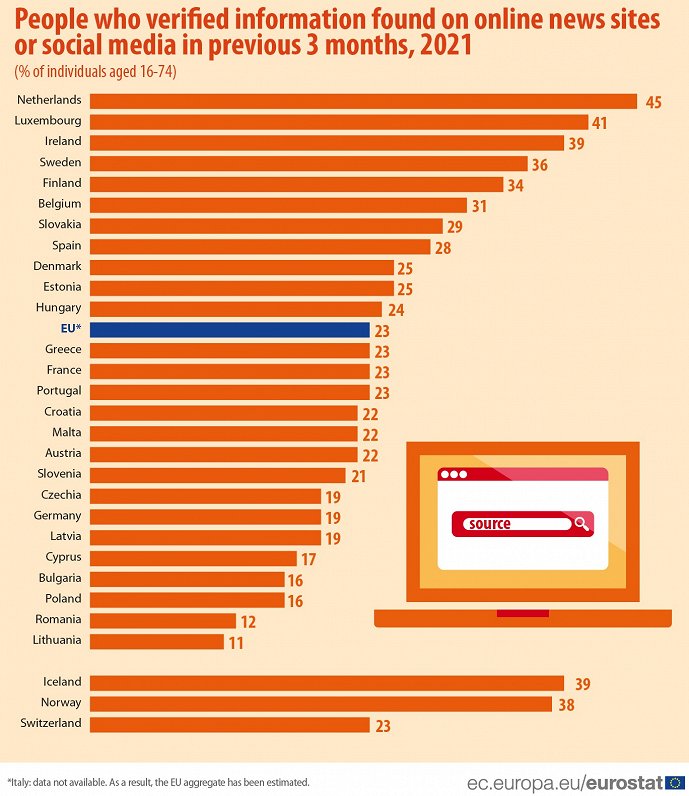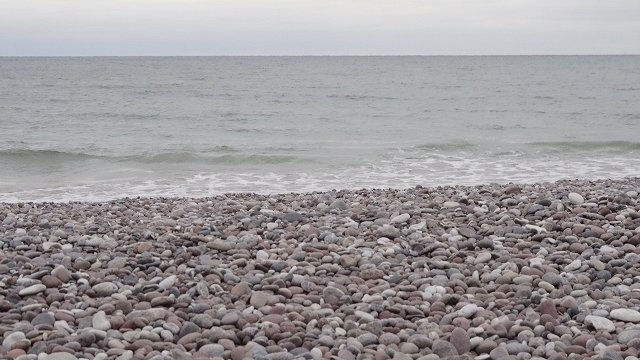In Latvia 48% of people said they had seen dubious information and 19% of those surveyed said they had checked online claims.
This information comes from data on ICT usage in households and by individuals published by Eurostat December 16.
The share of people aged 16-74 years old who verified information found on online news sites or social media in the previous 3 months was largest in the Netherlands (45%), followed by Luxembourg (41%) and Ireland (39%). The smallest share was recorded in Lithuania (11%), followed by Romania (12%) and Poland (16%).
In the EU, people aged 16-74 years old primarily checked if the information was truthful by checking the sources or finding other information on the internet (20%). People also checked information by discussing it with other persons offline, or using sources not on the internet (12%). The least popular method was checking by following or taking part in an internet discussion regarding the information (7%).

The survey revealed some other interesting data, too. Disparities between the EU Member States can be observed in the way internet users managed access to their personal information on the internet in 2021. Slightly less than three quarters (73%) of EU internet users managed access to personal information over the internet, a share that ranged from just 56% in Romania to 91% in both Finland and the Netherlands. For Latvia the figure was 65%.
In 2021, the share of individuals (aged 16 to 74) in the EU who used any website or app for renting accommodation from an enterprise or a private person during the preceding 3 months stood at 10%. This proportion ranged from highs of 24% in the Netherlands followed by Luxembourg (23%) and below one fifth for ten countries like Spain, Belgium and Denmark, down to less than 1 in 10 individuals in fifteen EU Member States, with the lowest shares recorded in Greece and Latvia (3%) and Cyprus, Poland and Romania (all at 2%).
For once, all this data really can be checked online at the Eurostat website.





























